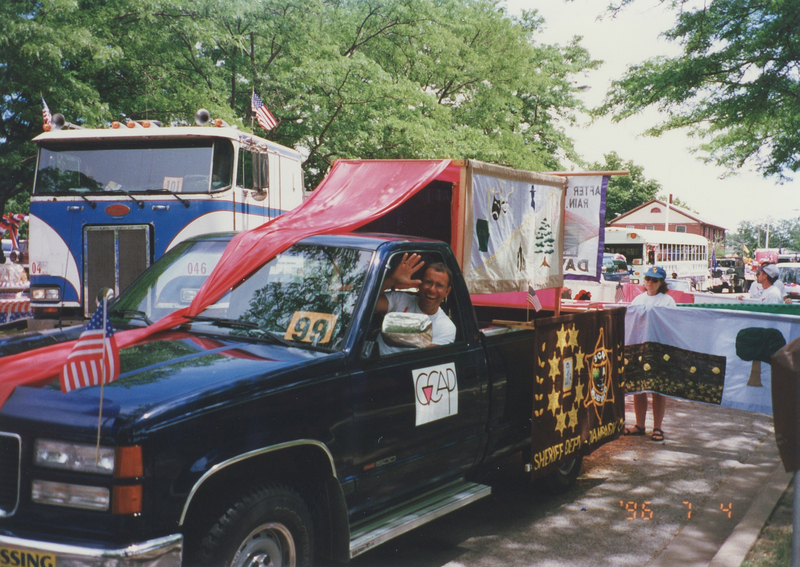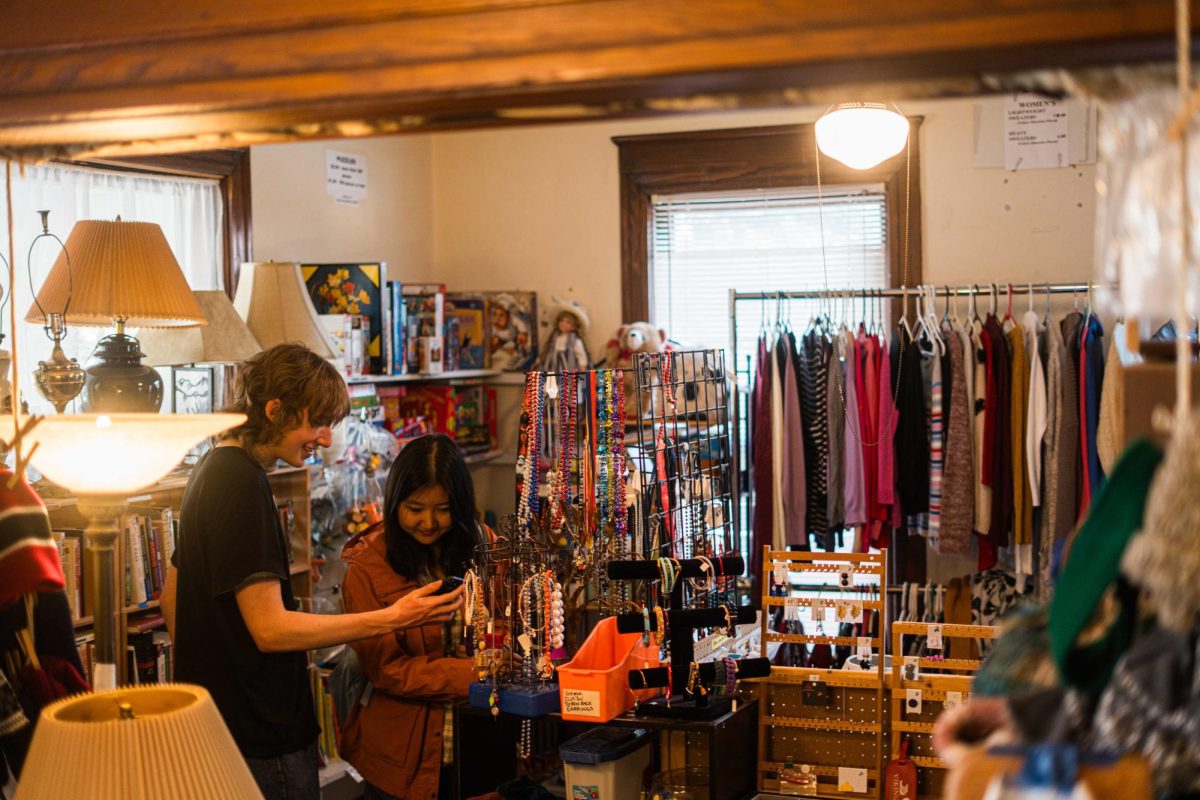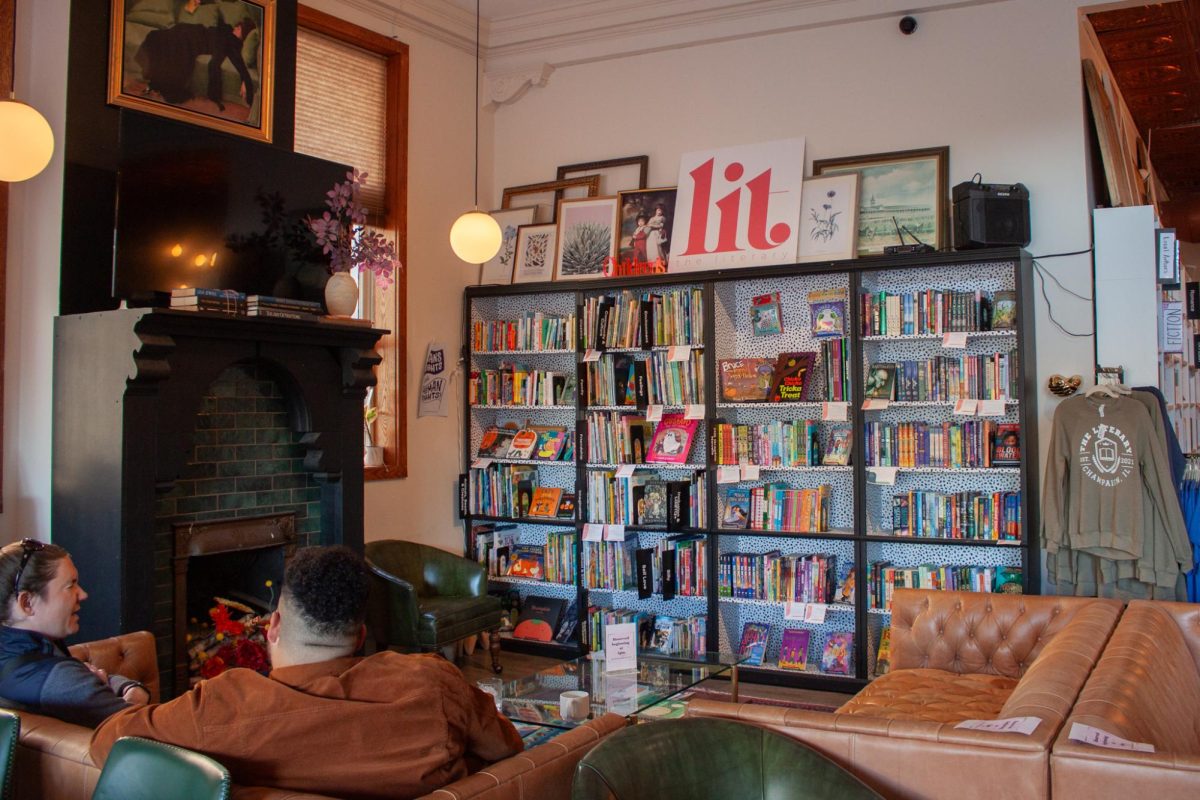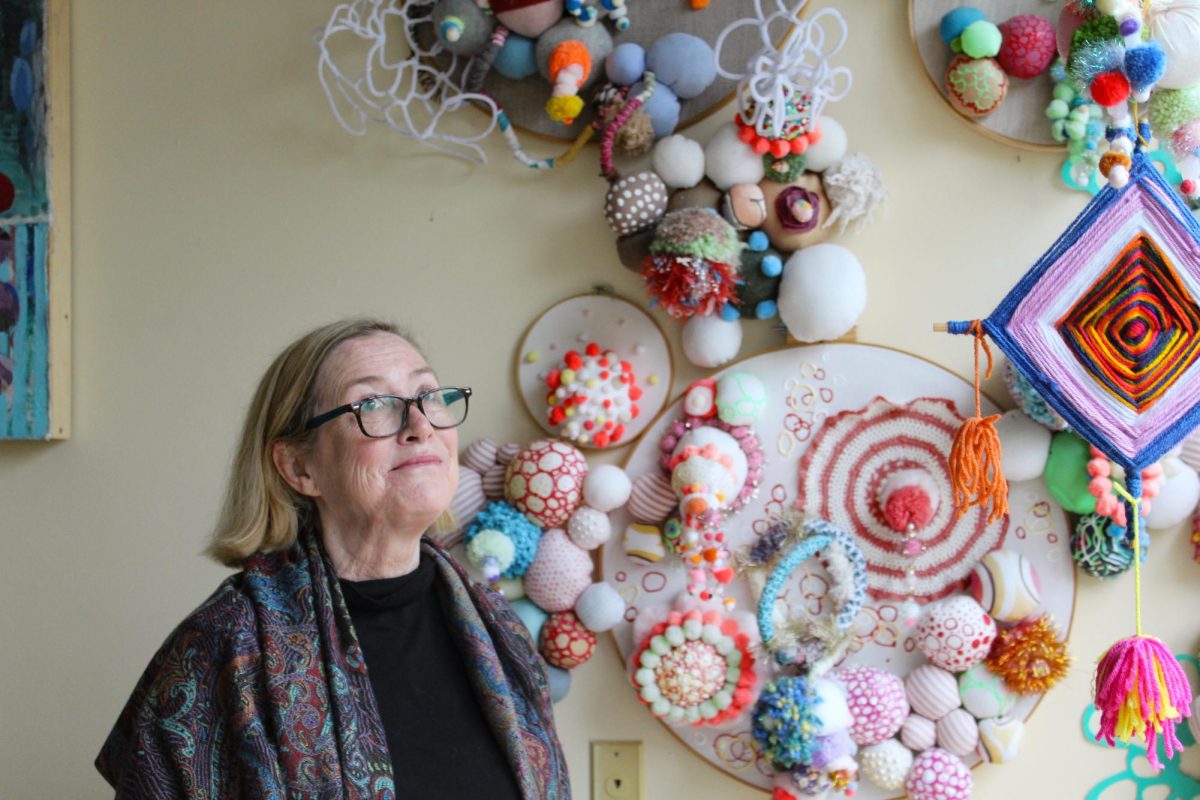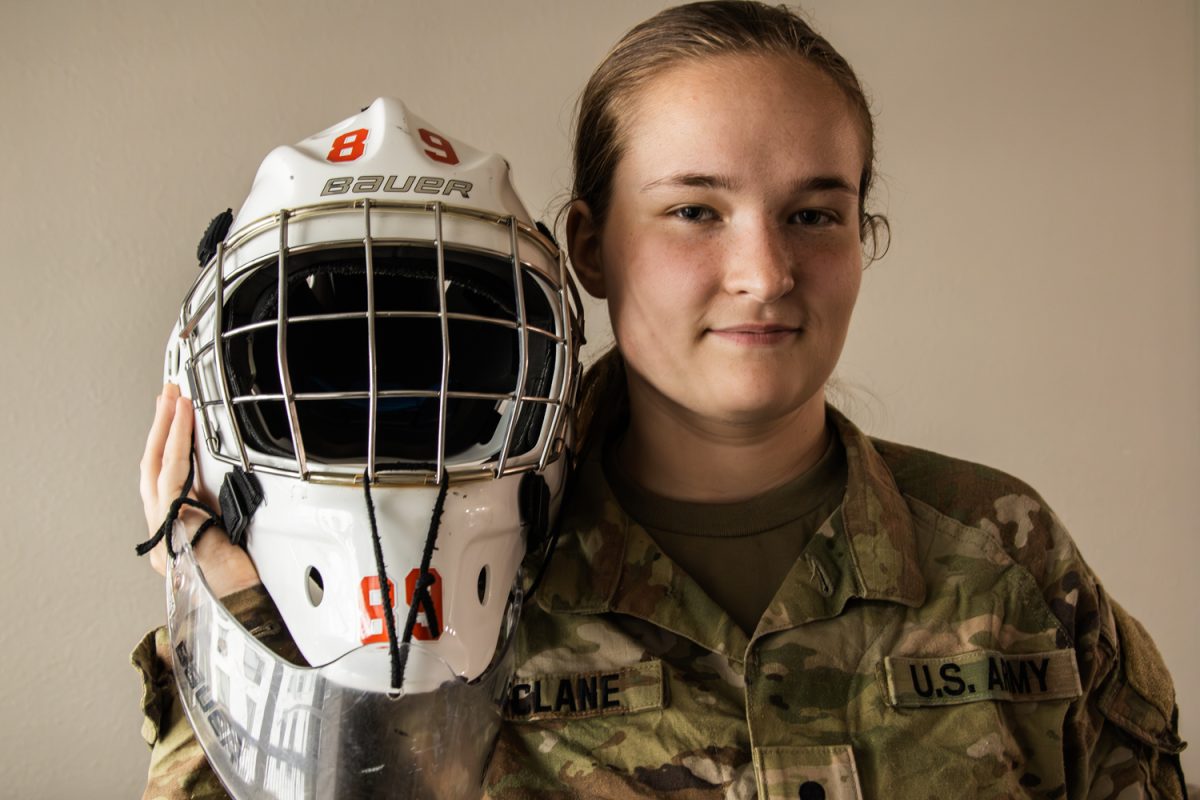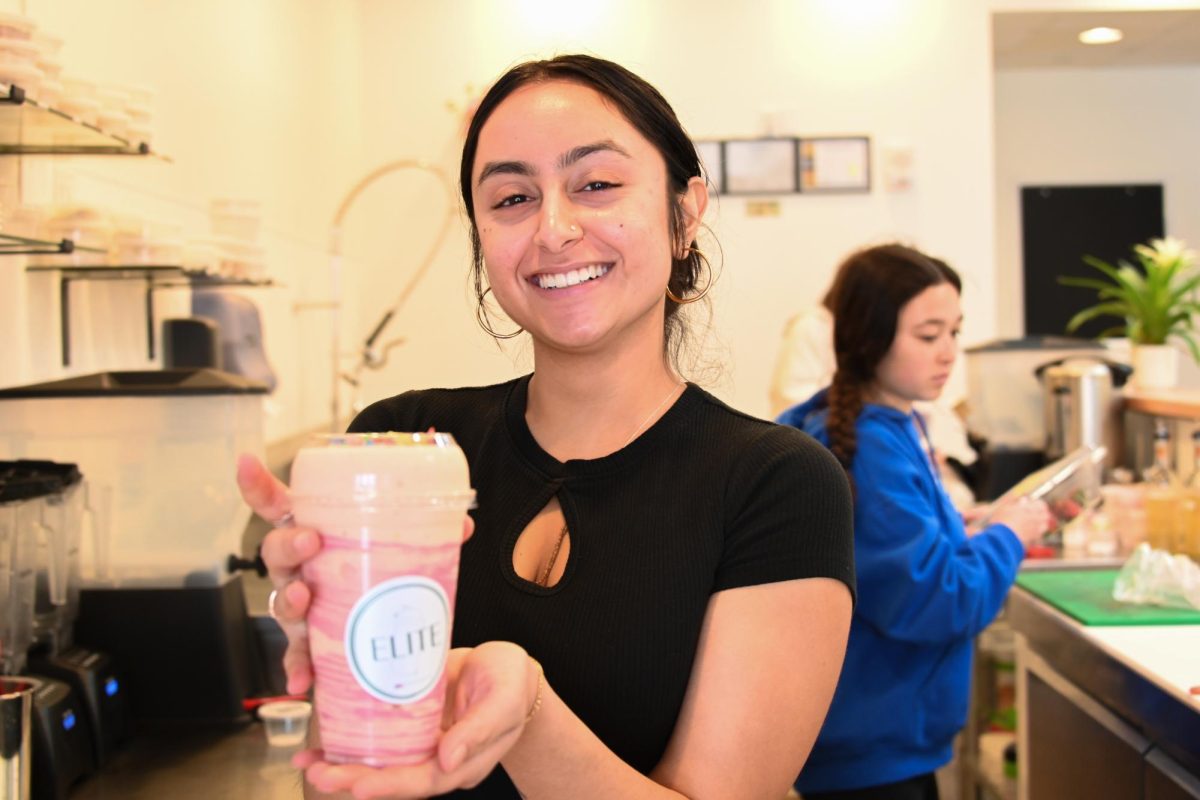Last updated on Oct. 29, 2024 at 04:21 p.m.
Many queer students on campus are familiar with the multitude of student-run LGBTQ+ organizations and events that welcome them to the University. Whether it be the Gender and Sexuality Resource Center or Uniting Pride of Champaign County, real strides have been made in recent decades to provide a safe space for Champaign-Urbana’s queer youth.
However, the individuals behind the social progress that has allowed the queer community to grow and prosper into the one we know today are often forgotten. Yet, their hard work and activism in the early years of the LGBTQ+ movement left behind an important legacy.
As a 68-year-old bisexual man who studied at the University’s community health program in the late 70s, Jerry Carden has been a part of the local queer community since the beginning. He has bore witness to the CU’s queer history, as well as contributed to it himself.
Carden moved to Urbana-Champaign in 1978 so his partner could finish their doctorate. At the same time, Carden decided to enroll at the University to begin his master’s degree.
Get The Daily Illini in your inbox!
“I really wasn’t involved with campus gay life (yet) other than I knew people that were on campus that were gay and I was aware of a group called the Gay Illini,” Carden said. “I learned a little bit about their history just by being in town.”
As documented by the University of Illinois Archives, The Gay Illini — which went on to be known by many different names — was a student organization formed in 1975. It was born from its predecessor, the Gay Liberation Front.
The Gay Illini was described as “an organization of women and men working together to provide needed services and educational programs to the Gay and Straight Communities of Urbana-Champaign.” This included, but was not limited to, a resource center that hosted a number of educational materials and support groups that practiced consciousness-raising.
Although Carden was not directly involved, he recounts the challenges members of the Gay Illini faced in securing funding from the University administration.
“The University, the powers that be, the trustees, were very much against providing any kind of funding for them as a University-sponsored group,” Carden said.
In the beginning, it was also difficult for the organization to find places to meet.
“Lesbian and gay groups, people that were out — which was also unique at that point in time — to find meeting space was difficult because the campus wasn’t open to providing meeting space for them,” Carden said.
The Channing-Murray Foundation, a non-profit organization located at the formal Unitarian Church in Urbana, was one of the first places that opened its arms to the Gay Illini.
“They were embracing of differences and people that were activists,” Carden said.
Other religious organizations like the McKinley Foundation and the United Church of Christ served as additional supporters.
It was during the early 80s that Carden finally became more directly involved with the larger queer community. He joined a social group for gay men called Alternate Current that hosted various activities like potluck dinners and bowling.
It was in this same period that Carden left an unhealthy relationship and achieved sobriety.
“If I hadn’t gotten sober and gotten out of that prior relationship, I would be dead now,” Carden said.
In 1981, Carden and other individuals in the local community started hearing about AIDS in major cities on the West Coast. At the time, it was referred to as “the gay cancer” and other derogatory names.
“All we knew was that it was affecting primarily gay men,” Carden said. “It wasn’t known how it was spread; we didn’t know that it was bloodborne, so there was a lot of fear, especially for people who were in new relationships like I was.”
Two years later, the C-U community started seeing some of its own cases of AIDS. Carden remembers a good friend of his being diagnosed with the illness and how it motivated his early activism.
“I just felt like I needed to be involved,” Carden said.
In 1985, Carden founded the Gay Community AIDS Project in conjunction with a group of other people who were interested in providing services and education surrounding the subject. They would routinely meet at the McKinley Foundation.
“We felt it was really important to have ‘gay’ in the title,” Carden said. “Again, that was a time frame when ‘gay’ was not as accepted, but we wanted the larger community to know we were doing something to help ourselves.”
While many people were supportive of their efforts, there were also those who worked to get GCAP shut down.
“When we tried to get some government funding through the Illinois Department of Public Health, this particular [state] representative, Tim Johnson, was successful in getting that funding blocked,” Carden said.
Ten years after the formation of GCAP, they decided to change its title from the Gay Community AIDS Project to the Greater Community AIDS Project in order to extend its reach to other minority communities.
“By then, we knew that AIDS wasn’t just a ‘gay disease’, it would affect anyone who had contact with the virus,” Carden said.
As more information came out about the disease and its effects, more changes came to GCAP. They started providing housing for individuals affected by HIV/AIDS under the program name Champaign House, which is still in operation today.
In more recent years, many other organizations have formed to serve the newest generations of the queer community. Uniting Pride, for example, was formed in 2009 and hosts social and support groups. It was mainly volunteer-based up until very recently.
“One of the things I’m trying to spearhead is getting people from my generation and even the generation behind me to do more to support Uniting Pride from a monetary standpoint,” Carden said. “If they’re going to have paid staff and they’re going to do their work, they need money.”
Today, Carden looks back on his struggles and reminds himself of one of the most important lessons he’s learned from it all.
“Over time, it was just a matter of unfolding and realizing that the secret to happiness is being yourself and not letting others control how you see yourself or how you live your life,” Carden said.



